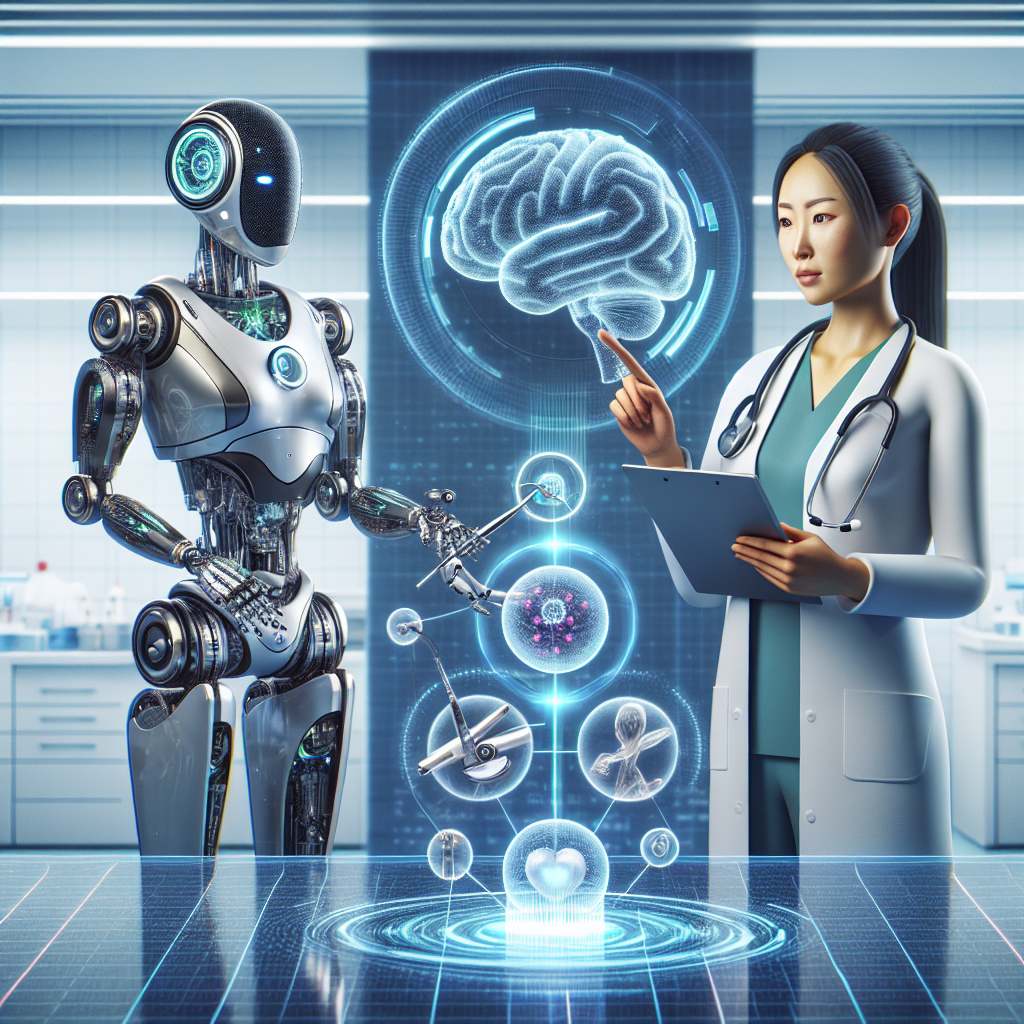Artificial Intelligence (AI) is revolutionizing the healthcare industry by improving service delivery and patient care. From streamlining administrative tasks to diagnosing diseases faster and more accurately, AI has the potential to transform the way healthcare services are delivered. In this article, we will explore the various ways in which AI is being used in healthcare service delivery and the benefits it brings to both patients and healthcare providers.
AI in Healthcare Service Delivery
1. Medical Imaging: AI algorithms can analyze medical images such as X-rays, MRIs, and CT scans to detect abnormalities and diagnose diseases. This can help radiologists to make accurate diagnoses faster, leading to better patient outcomes.
2. Personalized Treatment Plans: AI can analyze patient data and medical records to create personalized treatment plans based on individual health needs. This can improve patient care by providing tailored interventions that are more effective and efficient.
3. Telemedicine: AI-powered virtual assistants can provide patients with medical advice, schedule appointments, and answer healthcare-related questions. This can improve access to healthcare services, especially for patients in remote or underserved areas.
4. Predictive Analytics: AI can analyze patient data to predict health outcomes and identify at-risk patients who may need intervention. This can help healthcare providers to proactively manage chronic conditions and prevent hospital readmissions.
5. Administrative Tasks: AI can automate administrative tasks such as appointment scheduling, billing, and coding, freeing up healthcare providers to focus on patient care. This can improve efficiency and reduce administrative costs in healthcare organizations.
Benefits of AI in Healthcare Service Delivery
1. Improved Accuracy: AI algorithms can analyze vast amounts of data and identify patterns that may not be apparent to human healthcare providers. This can lead to more accurate diagnoses and treatment plans, improving patient outcomes.
2. Increased Efficiency: AI can automate repetitive tasks, such as administrative duties and data entry, allowing healthcare providers to focus on more complex and critical aspects of patient care. This can improve efficiency and reduce the time it takes to deliver healthcare services.
3. Enhanced Patient Care: AI can provide patients with personalized treatment plans and access to medical advice through virtual assistants. This can improve patient satisfaction and outcomes by delivering tailored interventions and support.
4. Cost Savings: By streamlining administrative tasks and improving efficiency, AI can help healthcare organizations reduce operational costs and improve their bottom line. This can lead to more affordable healthcare services for patients and improved financial sustainability for providers.
5. Access to Healthcare: AI-powered telemedicine platforms can provide patients with access to healthcare services from the comfort of their own homes. This can improve access to care, especially for patients in rural or underserved areas who may have difficulty traveling to a healthcare facility.
FAQs
Q: Is AI replacing healthcare providers?
A: No, AI is not replacing healthcare providers but rather augmenting their abilities and improving the delivery of healthcare services. Healthcare providers will still play a crucial role in diagnosing and treating patients, while AI can assist in streamlining administrative tasks and providing data-driven insights.
Q: Is AI secure and compliant with patient privacy regulations?
A: Healthcare organizations must ensure that AI systems comply with patient privacy regulations, such as the Health Insurance Portability and Accountability Act (HIPAA). AI algorithms should be designed with robust security measures to protect patient data and ensure compliance with privacy laws.
Q: How can healthcare providers implement AI in their practice?
A: Healthcare providers can implement AI in their practice by partnering with AI vendors, investing in AI technology, and training staff on how to use AI tools effectively. It is important to carefully evaluate AI solutions and ensure they align with the organization’s goals and values.
Q: What are the limitations of AI in healthcare service delivery?
A: While AI has the potential to transform healthcare service delivery, there are limitations to consider. AI algorithms may not always be accurate or reliable, and there is a risk of bias in data collection and analysis. Healthcare providers must carefully evaluate AI tools and consider their limitations before implementing them in practice.
In conclusion, AI is transforming healthcare service delivery by improving accuracy, efficiency, and patient care. From medical imaging to personalized treatment plans, AI has the potential to revolutionize the way healthcare services are delivered. By leveraging AI technology, healthcare providers can enhance patient outcomes, reduce costs, and improve access to care. It is crucial for healthcare organizations to carefully evaluate AI solutions and ensure they comply with patient privacy regulations to maximize the benefits of AI in healthcare service delivery.

